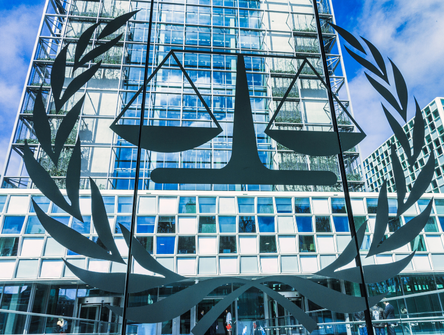A round-up of the Canadian Bar Review
Here's a quick peek at the latest from legal scholarship on emerging issues in law.

In the latest volume of the Canadian Bar Review
Canada's unwritten constitutional order
"Does Canada, like the United States, have a written constitution? Or, is Canada like the United Kingdom, which has an unwritten constitution?" The answer to both questions is yes, write Supreme Court Justice Malcolm Rowe and lawyer Nicolas Déplanche, who in the latest volume of the Canadian Bar Review describe constitutional conventions and how they interact with the written constitution:
Although conventions and underlying constitutional principles function differently, they both serve purposes—in some ways similar, in other ways complementary—in our constitutional order. As we have seen, constitutional conventions are more than mere guidelines that political actors are free to adhere to or depart from as they see fit. Rather, conventions are rules that are essential to the structure of Westminster systems. Conventions ensure that constitutional law is given effect in a way that is consistent with the broad principles undergirding the organization of the state.
Evaluating Canada's Genetic Non-Discrimination Act
Canada's Genetic Non-Discrimination Act – or GNDA – was adopted as a response to address concerns about medical practitioners and for-profit genetic testing companies like Ancestry.com collecting and storing genetic information. But was it really necessary? And how effective has the GNDA been in preventing genetic discrimination? Kathleen Hammond of Ryerson University argues that there is, in fact, growing evidence that genetic discrimination does happen in Canada, particularly in the realm of employment and insurance. What's more, the law should serve as an important tool to "get ahead of fast-paced scientific research and medical developments in the realm of genetic testing, and the quickly growing accessibility of genetic testing and genetic information."
AI and peace bonds in Canada
Assistant Ontario Crown attorney Michael Purcell and Mathew Zaia, Editor-in-Chief of the Ottawa Law Review consider how peace bonds, as tools of preventative justice, are likely to attract the use of predictive technologies. Noting that "the peace bond defendant is uniquely positioned as a person accused of no crime, but one who faces liberty restrictions on a diminished standard of proof," the authors raise a central question when it comes to the use of AI: "What is the appropriate balance between preventing crime and infringing liberties?" Ultimately, Purcell and Zaia conclude that AI is an inevitable presence in our criminal justice system. Lawmakers must develop a coherent legal framework to govern the use of predictive technologies in criminal courts.
The doctrine of functus officio
For all its power, little attention is paid the functus doctrine, which dictates that decision-makers—be they judges, administrative officials, or arbitrators—cannot as a general rule reopen their decisions to correct a mistake. And yet it play a pivotal role in turning the wheels of justice, writes Anna S.P. Wong, the lead counsel of professional conduct at the Immigration Consultants of Canada Regulatory Council, by bring "finality, certainty and orderliness to the legal process by enforcing a cutoff point." The problem is that the doctrine, when applied without some degree of flexibility, "can put a choke on substantive justice and bring about injustice instead." She notes that the Supreme Court has created a general discretionary exception to the functus doctrine, but without much concrete guidance. The author proposes a three-step analysis for a principled and flexible approach to applying it.
Book review
Thomas McMorrow of Ontario Tech University reviews Eric H Reiter's book, Wounded Feelings: Litigating Emotions in Quebec, 1870 –1950. "Reiter's thematic inquiry into Quebec civil law's treatment of emotion raises tantalizing questions about how the law has changed since, and what the causes and ramifications of those changes may be."
La litispendance internationale et la révocation des donations entre époux
Gerald Goldstein de l’Université de Montréal commente l’arrêt RS c. PR, dans laquelle la Cour suprême du Canada présente une interprétation des conditions de la litispendance internationale (art. 3137 CcQ). Elle accepte un léger fardeau de la preuve de la condition de susceptibilité de reconnaissance de la décision étrangère. L’auteur favorise plutôt la position dissidente plus exigeante. À juste titre, selon l’auteur, la Cour suprême écarte une conception restrictive du pouvoir discrétionnaire de ne pas accepter la litispendance. Incidemment, l’auteur propose une interprétation de la loi applicable à la révocation des donations entre époux et critique l’interprétation donnée dans cette affaire aux règles de compétence internationale indirecte en matière de divorce.
Le lien de droit qui unit l’enfant à son père
Johanne Clouet de l’Université de Montréal commente un jugement en droit de la famille « lourd en conséquences », qui porte sur une action en réclamation de filiation entreprise par le père biologique de l’enfant qu’il a eu avec la défenderesse et dont l’acte de naissance ne comporte pas de père déclaré. Le conjoint de fait de la mère souhaitait également faire reconnaître sa paternité à l’égard de l’enfant. La juge, concluant que ce dernier est le père légal de l’enfant, ordonna au directeur de l’état civil de modifier l’acte de naissance de l’enfant pour qu’il reflète désormais cette réalité. Johanne Clouet note que la décision reconnaît « une paternité psychologique au conjoint de la mère, a l’effet d’un jugement d’adoption ou d’une déclaration de déchéance parentale totale à l’égard du père biologique de l’enfant ». Mais elle soutient que la juge a erré en droit en appliquant « à un cas de réclamation judiciairede filiation la hiérarchie des moyens de preuve qui prévaut en matière extrajudiciaire. »


